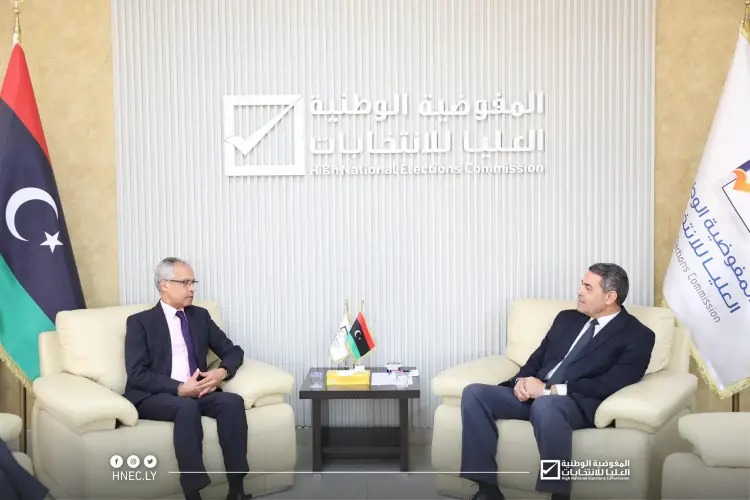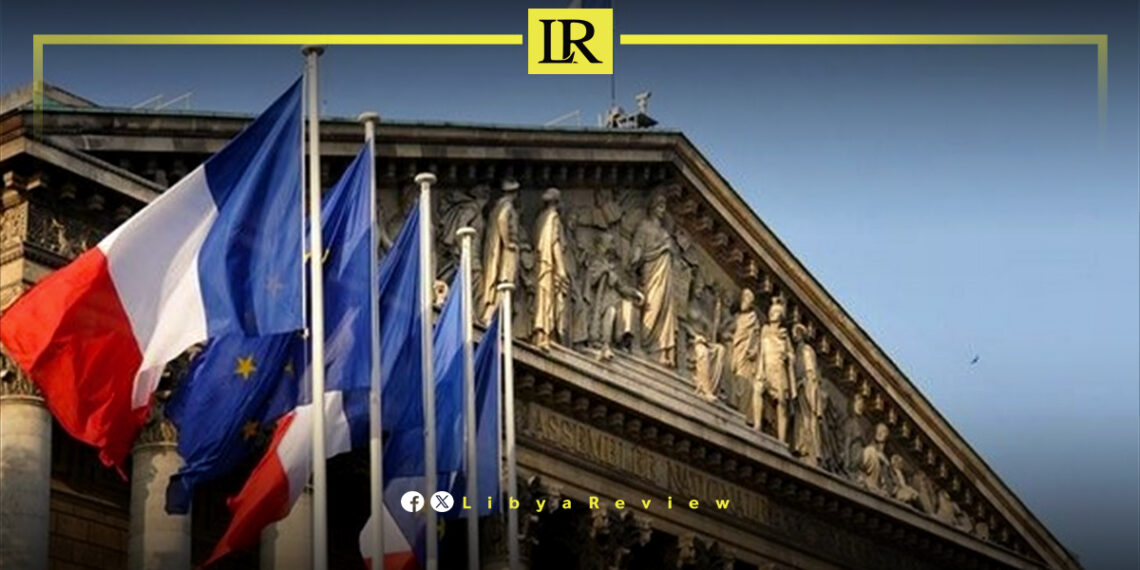On Monday, the Chairman of Libya’s High National Elections Commission (HNEC), Emad Al-Sayeh, met with the French Ambassador to Libya, Mostafa Mihraje, at the Commission’s headquarters in Tripoli.
This visit, part of the international community’s broader efforts to support Libya’s democratic process, aimed to assess the readiness of the Commission to oversee the 2024 municipal elections and the ongoing preparations for the voting day.
During the meeting, Ambassador Mihraje expressed France’s deep appreciation for the significant work carried out by the HNEC to ensure that the upcoming elections meet international standards. He reaffirmed France’s readiness to provide the necessary technical and advisory support, which will help enhance the Commission’s capacity to manage the elections efficiently.

Libya’s 2024 municipal elections are seen as a critical step in the country’s stabilization efforts after years of political and military strife. The visit from France signals continued international engagement with Libya’s transition toward democracy, emphasizing the importance of free and fair elections to cement the country’s political progress.
France’s commitment comes at a crucial time for Libya, a nation that has struggled to emerge from over a decade of conflict and division following the fall of Muammar Gaddafi in 2011. Successive transitional governments have made repeated efforts to organize elections, but political instability, security concerns, and disagreements among key factions have repeatedly delayed national votes.
However, the upcoming municipal council elections are part of a larger strategy to restore political unity and stability across Libya. Successful local elections will be an essential building block toward larger national elections, including the long-awaited parliamentary and presidential polls, which are necessary to unify the country’s fractured political landscape.
Libya still faces significant hurdles in the run-up to the 2024 elections. Security remains a serious concern, as armed groups continue to hold sway over many regions. Moreover, the political climate is fragile, with risks of renewed conflict if the elections are not managed properly. Yet, the municipal elections represent an opportunity for Libya to prove that it can conduct legitimate elections, even in a challenging environment.


